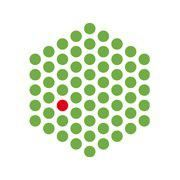 Structural bioinformatics
Structural bioinformatics
Date: 11 - 15 October 2021
Structural biology, determining the three-dimensional shapes of biomacromolecules and their complexes, can tell us a lot about how these molecules function and the roles they play within a cell. Data derived from structure determination experiments enables life-science researchers to address a wide variety of questions. 2021 marks 50 years of the Protein Data Bank (PDB), the single worldwide archive of experimental biomacromolecular structures, highlighting the depth of knowledge available for understanding molecular structure and function.
This course explores bioinformatics data resources and tools for the investigation, analysis, and interpretation of biomacromolecular structures. It will focus on how best to analyse and interpret available structural data to gain useful information given specific research contexts. The course content will also cover predicting protein structure and function, and exploring interactions with other macromolecules as well as with low-MW compounds. There will also be a short session covering the new AI-predicted protein structures database, AlphaFold DB.
This course will be a virtual event delivered via a mixture of live-streamed sessions, pre-recorded lectures, and tutorials with live support. We will be using Zoom to run the live stream sessions (all fully password protected with automated English closed captioning and transcription) with support and networking opportunities provided by Slack. In order to make the most out of the course, you should make sure to have a stable internet connection throughout the week. There will also be networking and short social activities throughout the course and efforts will be made to make these accessible at different time zones across the week.
Selected participants will be sent materials prior to the course. These might include pre-recorded talks and required reading or online training that will be essential to fully understand the course.
Keywords: Protein Data Bank in Europe , Proteins (proteins), Structures (structures), UniProt: The Universal Protein Resource , InterPro , Electron Microscopy Public Image Archive - EMPIAR , InterProScan , Electron Microscopy Data Bank , PDBeFold , Protein Data Bank in Europe - Knowledge Base
Target audience: This course is aimed at scientists generating structural data or scientists utilising structural data in their analysis and/or interpretation. No previous experience in the field of structural bioinformatics is required, however a basic knowledge of protein structure would be of benefit.
Capacity: 30
Activity log

 EMBL-EBI
EMBL-EBI
